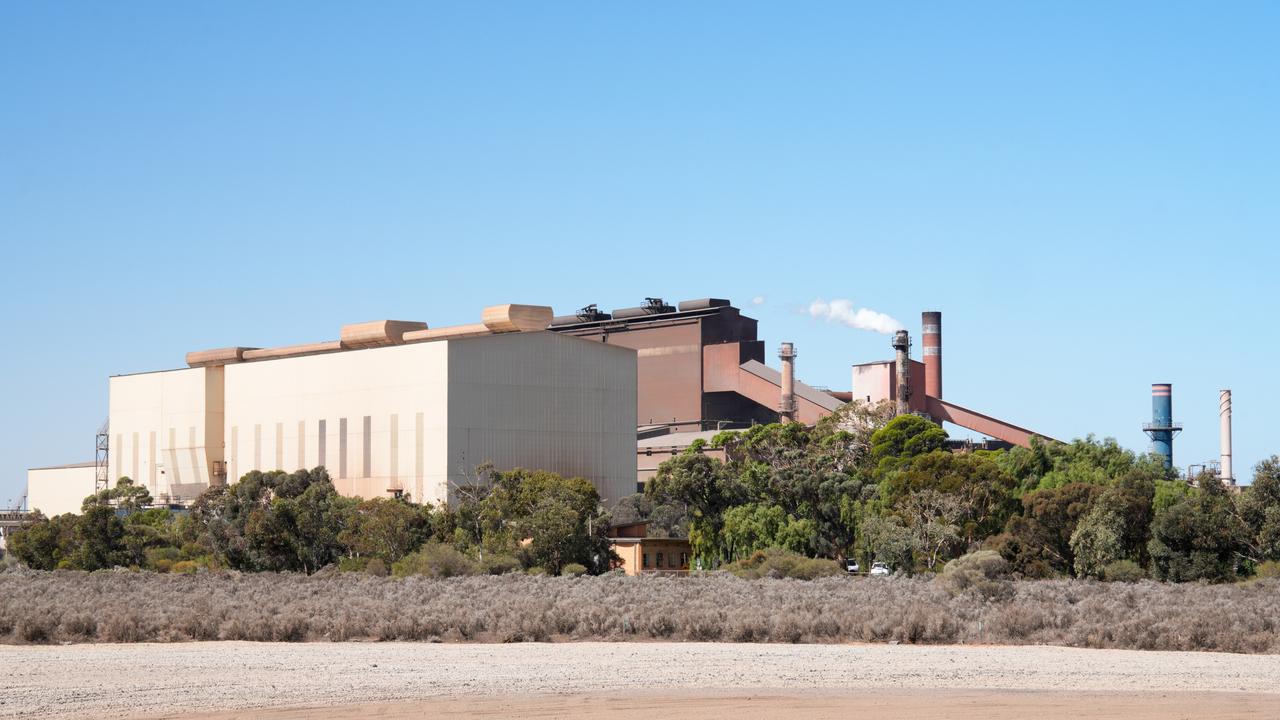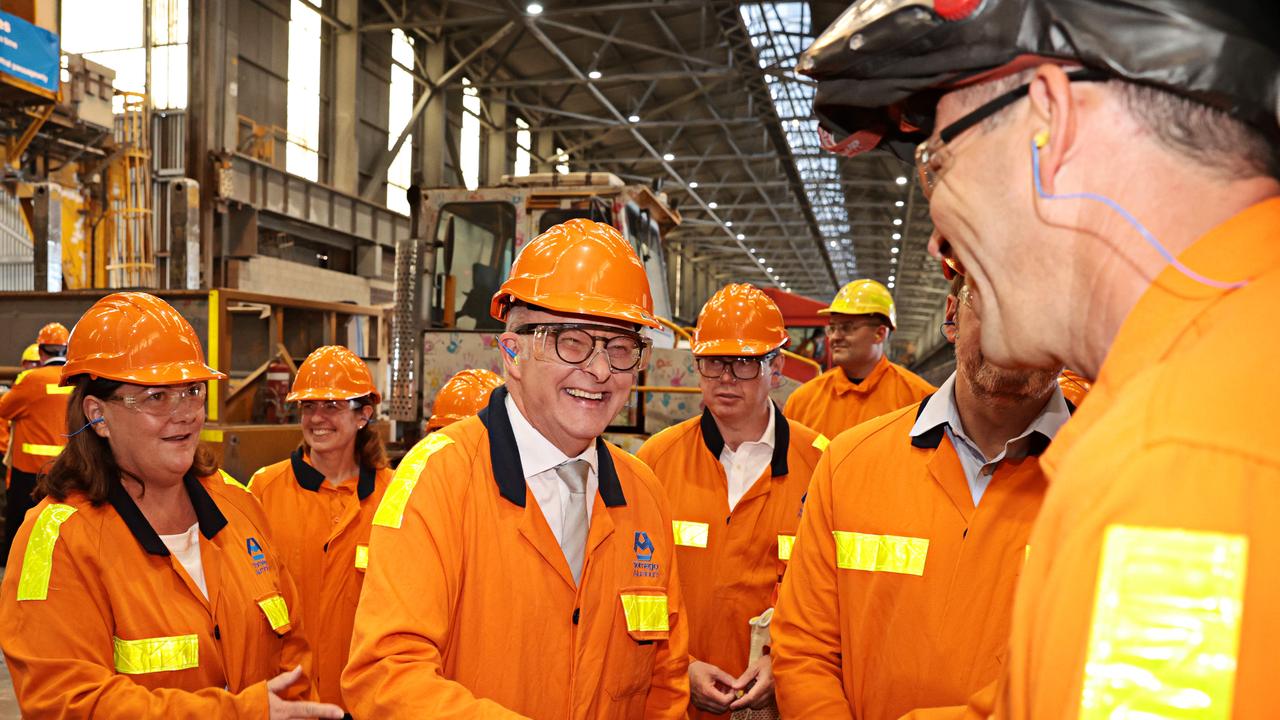The Senate inquiry into supermarkets has issued 14 recommendations in its report
Woolworths boss Brad Banducci won’t be pursued for contempt or jail time, but that’s where the good news stops, as Senate inquiry recommends major crackdown.
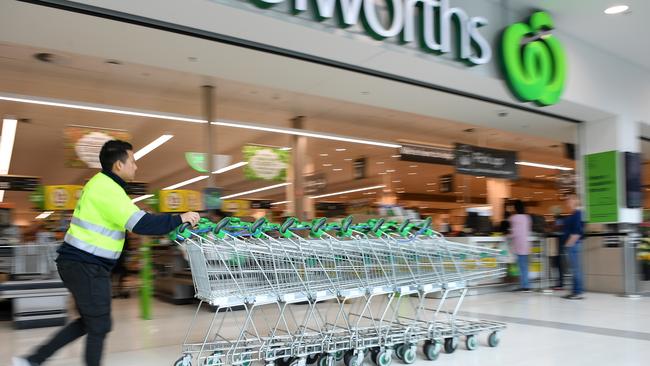
Business
Don't miss out on the headlines from Business. Followed categories will be added to My News.
Woolworths boss Brad Banducci won’t be pursued by the Greens-led Senate supermarket inquiry for contempt, and jail time of up to six months, after his fiery appearance last month but the inquiry has hit out at the powerful supermarket chains with recommendations to curtail their power, heighten regulatory oversight and possibly break them up.
In a lengthy 195-page report released on Tuesday, which carried 14 key recommendations aimed at lifting competition, limiting the power of Woolworths and Coles and beefing up regulation, the inquiry heavily criticised Mr Banducci for his performance, castigated Bunnings for not sending its CEO and ‘named and shamed’ multinational supermarket suppliers who declined to turn up at all.
The highly-anticipated report comes after the Albanese government earlier this year gave approval for the Greens-led inquiry to go ahead, handing Greens Senator Nick McKim a powerful pulpit as inquiry chairman to level accusations of price gouging and profiteering at Woolworths and Coles, and in one combative hearing threaten Mr Banducci with contempt charges and jail time.
The 14 key recommendations include recommending the federal government pursue a range of new rules and legislation to combat the power of the supermarket giants Woolworths and Coles, including divestiture powers, establishing a prices commission and making the food and grocery code of conduct compulsory.
Divestiture powers could allow a court to break up a large corporation, such as the biggest supermarket chains, if they were seen to be misusing their market power. The bosses of Woolworths and Coles warned in their public hearings that divestiture could cause unintended consequences such as job losses and a fall in business investment, while other witnesses before the inquiry argued in favour of these powers being introduced.
The committee also recommended that, as a matter of priority, the government establish a Commission on Prices and Competition to examine prices and price setting practices of industries across the economy, and review government and other restrictions on effective competition which are leading to high prices.
This commission would have the authority to, among other things, monitor and investigate supermarket prices and price setting practices, conduct market studies to review restrictions on competition in the supermarket sector, require supermarkets to publish historical pricing data that is transparent and accessible to both suppliers and consumers and access any data and information required to undertake its work, including supermarket pricing, mark-ups and profits data and price setting policies.
It has also called on the Competition and Consumer Act to be amended to prohibit the “charging of excess prices, otherwise known as price gouging”, merger laws to be strengthened, and the ACCC be given greater funding.
It has also recommended the current voluntary food and grocery code of conduct that covers the relationship between suppliers and Woolworths, Coles, Metcash and Aldi, be made mandatory.
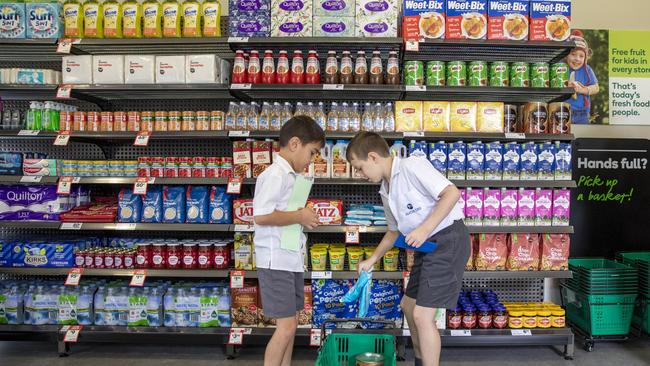
Further in its report the inquiry heavily criticised Woolworths chief executive Mr Banducci as well as representatives of Bunnings that appeared before its public hearings, however for now said it will not pursue contempt charges and a jail term for Mr Banducci following a heated appearance last month.
In its length report released on Tuesday, the Senate inquiry into supermarkets detailed the prickly appearance of Mr Banducci before Senators last month when he repeatedly refused to state what Woolworths return on equity was and was later warned by inquiry chairman, Greens Senator Nick McKim, that he could be found in contempt of the Senate that carries a jail term of up to six months.
“One area where the committee did not enjoy productive engagement with the major chains was during the public hearing appearance of the chief executive officer of Woolworths, Mr Brad Banducci,” the report said.
Woolworths later provided the return on equity figure, and the Senate inquiry will not pursue contempt charges, but still criticised Mr Banducci and his performance in its report.
“Woolworths later provided its 2023 ROE (return on equity) to the committee on notice. The committee is therefore not minded to pursue the matter.
“However, the committee reminds all those engaging with the Senate about the powers of committees to compel the production of documents, the answering of questions and the appearance of witnesses.”
The inquiry report also criticised hardware giant Bunnings, which sent executives to front the inquiry, as well as a number of other large food and grocery suppliers.
“Other companies, like Bunnings, were also not forthcoming with the committee and its requests for evidence.
“The committee was disappointed that the Bunnings chief executive officer did not appear personally to give evidence. The committee also sought to hear from a range of multinational companies, to seek their explanations as to their roles in food and grocery price setting. “(T)he committee considered the engagement of these companies to be unsatisfactory.”
The inquiry report has revealed some of the country’s largest food and grocery manufacturers such as Coca Cola and Mars refused to appear before the Senate inquiry into the supermarkets, earning the wrath of the Greens-led inquiry.
Some cited not enough time to prepare for a public hearing while others said key executives were overseas or on holiday.
In its report the Senate inquiry thanked those that appeared before its public hearings, or made submissions, but revealed that a number of large multi-national suppliers to the supermarket sector declined an invitation to appear.
“As part of its work, the committee invited the following companies to appear before it at a public hearing: Coca-Cola Europacific Partners; Kellanova (formerly Kellogs); Kraft Heinz Australia; Mars Australia; Nestle Australia; PepsiCo Australia; Procter & Gamble Australia; and Unilever Australia,” the report said.
“All eight companies declined the committee’s invitation, much to the committee’s dissatisfaction. All companies argued that they were given insufficient time in which to prepare for the hearing, and further, that their CEOs and other key executives were on leave and/or overseas.
“As a result, the committee instead requested written submissions from these companies and placed written questions on notice to them—however, this did not give the committee the ability to properly interrogate the evidence put forward.”
Woolworths and Coles were heavily criticised at the public hearings and in the report.
The interactions between Mr Banducci and inquiry chairman Senator McKim were the key flashpoints of the inquiry public hearings.
At last month’s public hearings Mr Banducci was accused by the inquiry chairman of trying to “bulls**t” the committee over the true profitability of the retailer by “cherry-picking” facts and engaging in spin, in what has been a fiery start to his appearance.
In a fiery exchange during Mr Banducci’s appearance, which was followed by an appearance by Coles boss Leah Weckert, Mr Banducci was savaged by Senator McKim, who accused Woolworths of profit gouging, misusing its market power and profiteering at a time when many Australians are dumpster diving to feed themselves.
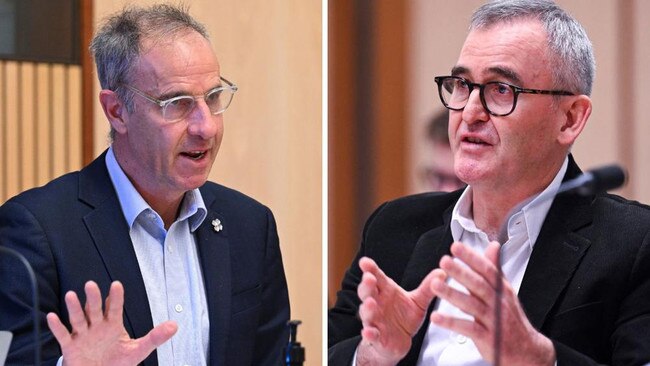
After repeatedly asking for financial information, Senate inquiry chairman Nick McKim, warned that Mr Banducci could face jail of up to six months if found in contempt for not answering the question about the Woolworths’s return on equity.
“It is open for the Senate to find you in contempt”, Senator McKim said after asking Mr Banducci again what that return on equity figure was.
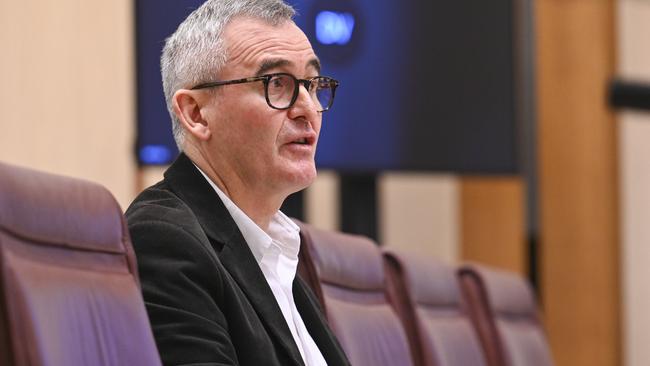
Senator McKim them cut off the Woolworths boss, saying: “I’m not interested or asking about the numbers you are looking at. I am asking about numbers that the committee is interested in and at the moment that is return on equity.”
During other public appearances by farmers and suppliers, the Senate inquiry was told about tough negotiations with the supermarket giants Woolworths and Coles, fresh produce being rejected at the last minute for allegedly immaterial reasons which saw the food dumped on the market to hand the growers massive losses and the supermarkets not paying fair and sustainable prices for produce.
Woolworths and Coles were also accused of land banking - a strategy where large tracts of land are bought up and then sat on for years to stop a rival supermarket building a new store - which both supermarket giants vehemently denied.
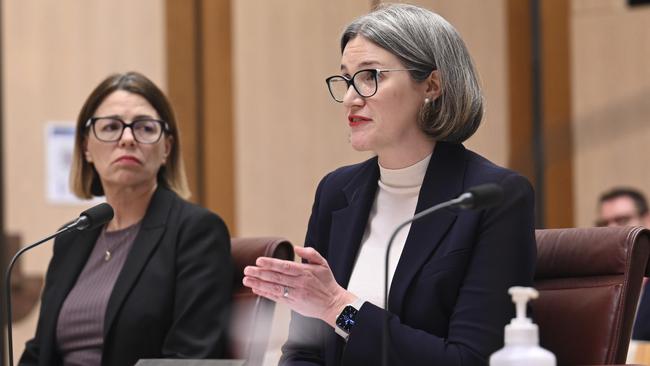
Originally published as The Senate inquiry into supermarkets has issued 14 recommendations in its report


